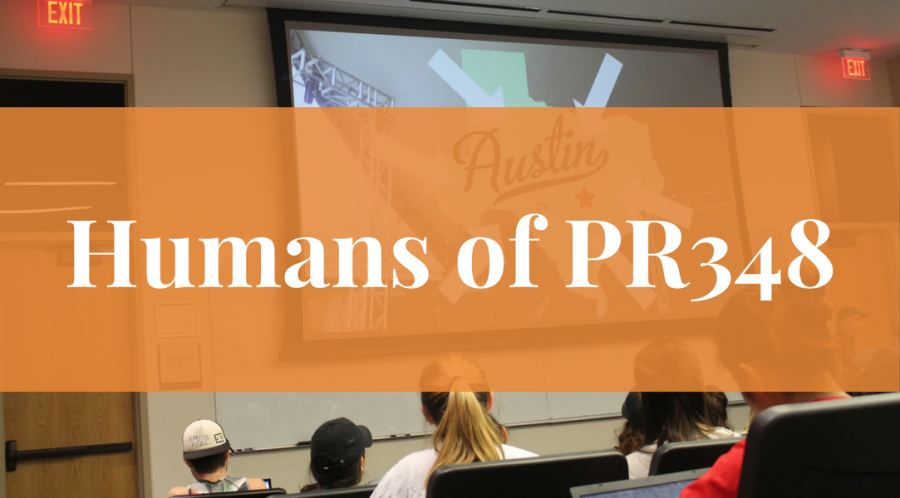By: Trey Schmedt
AUSTIN, Texas — Joy Diaz, producer and reporter for the Texas Standard, a radio show produced by KUT 90.5, visited Dr. David Junker’s PR 348 class to speak to students about the changing demographics in Texas on Nov. 16.
Originally from Mexico, Diaz and her husband moved to the U.S. in 1998. She joined KUT in 2005 and is now a senior reporter for the station, but she is also a producer for the KUT radio show the Texas Standard. During her time with KUT, she has covered Austin news and politics, education, healthcare and immigration.
KUT is an NPR affiliate station, so the Texas Standard is carried by 30 stations around the state. The show prides itself on setting a new bar for broadcast news coverage, offering crisp, up-to-the-moment coverage of politics, lifestyle and culture, the environment, technology and business – from a Texas perspective.

During the lecture, Diaz played a recording of a story she produced last year, “If Texas Had Only 100 People This Is What It Would Look Like” featuring demographer Lloyd Potter. The story claimed that 26 people would not have internet at home and 35 people speak a different language at home. Diaz then asked the classroom full of students why they thought she played the recording.
“As reporters it is important to know the people we are serving,” Diaz said. “For public relations, it is important you know the people you want to reach”
Texas is a very technologically driven state, yet over a quarter of Texas residents do not have internet at home. This means that when messages are solely placed online around 7.4 million people in Texas may not see that message. Diaz wants students to think about this when crafting pitches to various news media outlets.
“That was a great point made by Diaz,” PR 348 student Allyson Reithmeier said. “We must think creatively to reach as many people as possible in a big state like Texas.”
Texas is much more diverse than many Texans realize. Over a third of Texas residents speak a different language at home. This means if messages are only presented in English, then nearly 6 million people may be unable to understand that message. Diaz encouraged the students to strongly consider learning a second language to help them better market themselves in the professional world.
“I chose to take Spanish here at UT because I believe it will set me apart from other applicants when I’m looking for my first job,” said PR 348 student Andres Farrera.
The state of Texas is changing right before our eyes. We now live in a very technological and diverse state, and this change is also affecting how Texans hear and read their news. Diaz finished her lecture by emphasizing that it’s our job as future public relationship professionals to proactively adjust to this changing media landscape.

















